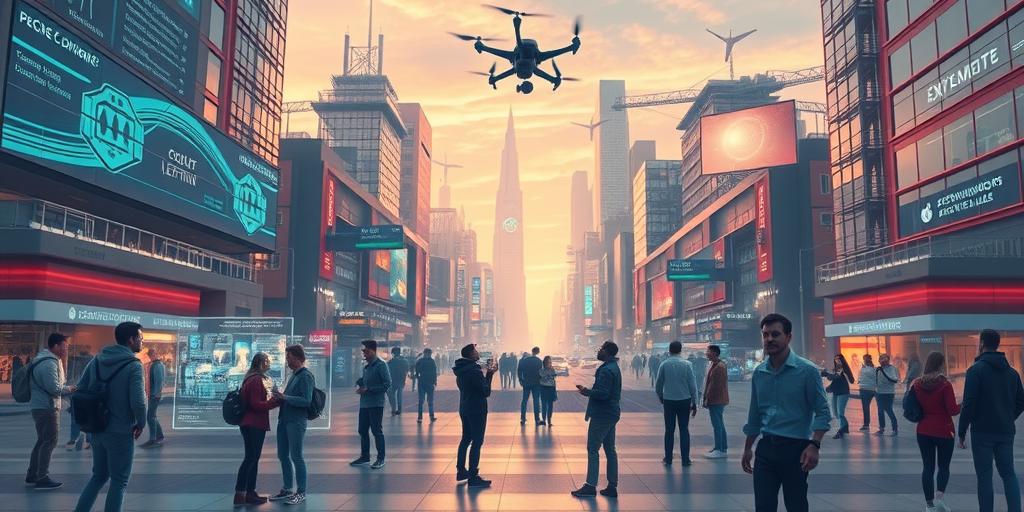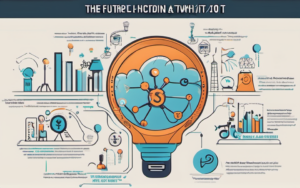The world is constantly evolving, and emerging technologies are playing a significant role in shaping how we live, work, and consume. These advancements are impacting every aspect of our lives, including our buying habits and decision-making processes. From personalized shopping experiences to the rise of virtual worlds, emerging technologies are transforming the consumer landscape in profound ways.
The Impact of Emerging Technologies on Consumer Behavior
Introduction
Emerging technologies are disrupting traditional business models and creating new opportunities for innovation. As consumers become more tech-savvy, they are demanding personalized experiences, seamless interactions, and greater control over their data. This shift in consumer expectations is forcing businesses to adapt and embrace new technologies to stay competitive.
Artificial Intelligence (AI) and Personalized Experiences
AI is rapidly transforming the way businesses interact with consumers. By analyzing vast amounts of data, AI algorithms can personalize product recommendations, tailor marketing messages, and provide individualised customer service.
AI-Powered Recommendations
E-commerce platforms like Amazon and Netflix use AI to suggest products and content based on your past purchases, browsing history, and preferences. These recommendations are often highly accurate and can significantly influence your buying decisions, making it easier to discover new products and services that align with your interests.
Chatbots and Customer Service
AI-powered chatbots are becoming increasingly common in customer service. These chatbots can answer frequently asked questions, resolve simple issues, and provide 24/7 support. They are often more efficient and responsive than human agents, leading to improved customer satisfaction.
The Rise of the Internet of Things (IoT)
The Internet of Things (IoT) refers to the interconnected network of devices that can communicate and share data. This technology is changing the way we live, work, and consume, creating new opportunities for businesses to engage with consumers.
Smart Homes and Connected Devices
Smart homes are becoming increasingly popular, with devices like smart thermostats, security systems, and lighting controlled by voice assistants or mobile apps. These devices collect data about your habits and preferences, allowing businesses to tailor their products and services to your individual needs.
Data Collection and Consumer Insights
The IoT generates massive amounts of data, which can be analyzed to understand consumer behavior in real-time. Businesses can use this data to gain insights into consumer preferences, purchasing patterns, and lifestyle choices, enabling them to develop more effective marketing strategies and product offerings.
Virtual and Augmented Reality (VR/AR)
VR and AR technologies are creating immersive experiences that are changing the way consumers shop and interact with brands. These technologies allow consumers to visualize products in their homes, try on clothes virtually, and explore virtual stores.
Immersive Shopping Experiences
VR/AR shopping experiences can provide a more engaging and interactive way to browse products. Consumers can explore virtual stores, try on clothes virtually, and even interact with virtual salespeople. These immersive experiences can lead to increased engagement and higher conversion rates.
Product Visualization and Try-Before-You-Buy
VR and AR technologies allow consumers to visualize products in their homes before making a purchase. For example, furniture retailers can use VR to let customers virtually place furniture in their living rooms, giving them a better sense of how the product will look in their space.
Blockchain Technology and Trust
Blockchain technology is a decentralized and transparent ledger system that records transactions securely and immutably. This technology has the potential to revolutionize the way consumers interact with businesses, creating a more trustworthy and transparent environment.
Transparency and Traceability
Blockchain can provide greater transparency and traceability for products and services. Consumers can track the origin of products, ensuring their authenticity and quality. This increased transparency can build trust between consumers and businesses.
Decentralized Platforms and Consumer Empowerment
Blockchain technology can also empower consumers by creating decentralized platforms that give them more control over their data and transactions. These platforms can facilitate peer-to-peer transactions, eliminating the need for intermediaries and reducing transaction costs.
The Future of Consumer Behavior
The rapid development of emerging technologies is constantly shaping the future of consumer behavior. As technology continues to advance, we can expect to see even more personalized and immersive experiences, greater control over our data, and a growing emphasis on ethical considerations and sustainability.
Ethical Considerations and Data Privacy
As emerging technologies collect and analyze increasing amounts of personal data, ethical considerations and data privacy will become more important. Consumers will demand greater control over their data and transparency from businesses about how their data is being used.
The Role of Technology in Shaping Consumer Preferences
Emerging technologies will continue to play a major role in shaping consumer preferences. The way consumers interact with brands, make purchasing decisions, and consume products and services will be increasingly influenced by these advancements. Businesses must stay ahead of the curve and embrace innovation to meet the evolving needs of their customers.
The impact of emerging technologies on consumer behavior is only just beginning to be realized. As technology continues to evolve, businesses must adapt and embrace these advancements to remain competitive in a rapidly changing market.




